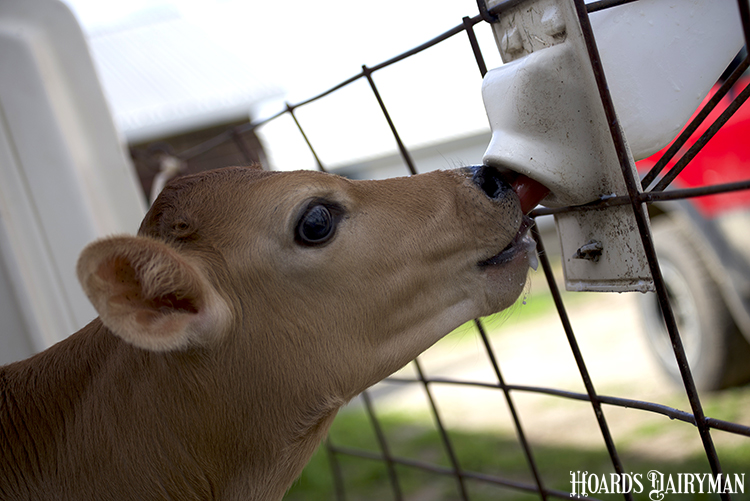
Anyone who raises calves knows the challenges associated with scouring calves. A once healthy calf can quickly fall ill, and without treatment, a case of scours can take a turn for the worse.
During the Four State Dairy Nutrition and Management Conference, Iowa State University’s Jesse Goff, D.V.M., explained that calves die from scours for one of several reasons, including dehydration and starvation.
While it’s not always easy to do, calves must maintain adequate fluid and nutrient consumption while dealing with diarrhea. Although some caretakers will withhold milk feedings from scouring calves, Goff said that there is no scientific evidence supporting this practice.
“If you withhold milk from the calf, the calf starves,” Goff stated. Instead, he recommended feeding calves their milk meal first and following up two or three hours later with oral electrolytes.
He also suggested feeding calves smaller volumes, of either milk or electrolytes, more often. “All treatments are more effective if fed in smaller amounts more frequently,” he noted.
Oral electrolytes can be administered by bottle if the calf will drink, but he said that as calves get sicker and sicker, the suckle reflex disappears. In these cases, an esophageal feeder should be used.
Don’t make a mix
Goff said some people will mix electrolytes into the milk or milk replacer, but that is not a practice he would recommend. Added electrolytes can raise the osmolarity or saltiness of the milk to a point that it makes the scouring worse. Hyperosmolarity can slow abomasal emptying and may lead to bloat, he explained.
In addition, if sodium bicarbonate is the main alkalinizer in the electrolyte, it can interfere with milk protein digestion. Still, if a farm was going to mix electrolytes with the milk or not feed them at all, Goff said that feeding them at the same time is a better option than not giving electrolytes to a calf that has diarrhea.








